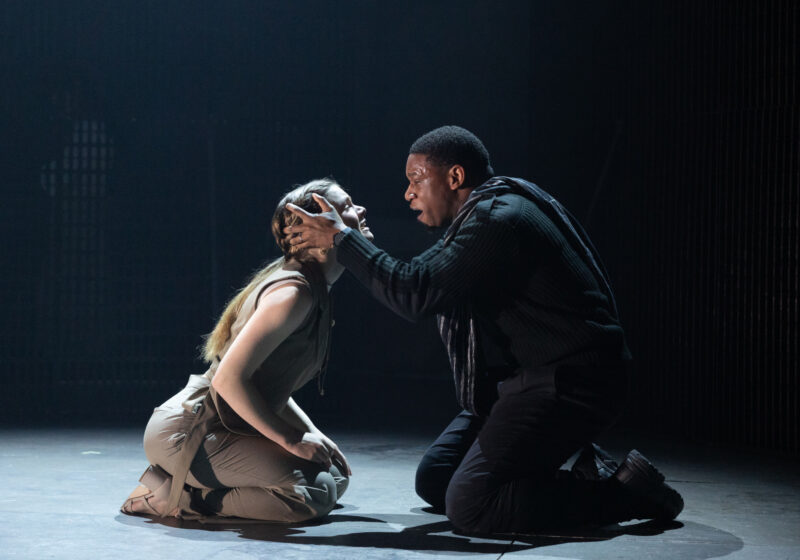Alumni, faculty, students and community members convened in front of Associate Professor and Chair of the Political Science Department Gerald Gamm and Assistant Professor David Primo for a 2008 presidential election discussion sponsored by the Office of Alumni Relations.
“Alumni were here from graduating classes from the 1940s, as well as people from the class of 2011,” Primo said. “It’s great such a wide diversity chose to spend an evening here about politics. That’s a 70-year gap.”
The professors explained the tentative structure of the evening, one they hoped would allot more time to an interactive question-and- answer period. Gamm began with a quick welcome to the audience and then immediately dived into discussing the “framing,” or enduring, foreign and domestic issues of the campaign.
“These issues have been with us and continue to be with us,” Gamm said.
He elaborated on some of the uncertain positions Democrats and Republicans are taking on a number of ongoing domestic issues. He also mentioned the important role of economics.
“In the end, economy matters. It will be difficult for Republicans to win if the economy is bad but easier for Republicans to win if the economy is good,” Gamm said.
He explained that this will be the first time relatively all new candidates are on the ballot.
“The last time we had a presidential election without a sitting vice president or president on the ballot was 1928,” Gamm said.
Another issue Gamm addressed was the compressed primary calendar.
“Our current system is a convoluted system that is a result of a set of reforms,” Gamm said. “[On] Feb. 5 an incredibly rich load of delegates are voting. We don’t know what it means in modern times to have half the delegates chosen in one day. Twenty-three states will choose their delegates.”
Gamm determined that this “Super Tuesday” might not lead to conclusive results.
“We might start looking at states that waited,” he said.
Gamm pointed out that the candidates’ backgrounds are equally unprecedented.
“Look at the front runners and you see something unprecedented and refreshing. On the Democrats’ side you see a candidate who is a woman, a front runner who has raised enormous amounts of money,” he said. “Bill Richardson is the first major party candidate who is Hispanic.”
Republicans are not left out of this unique group of candidates. “Mitt Romney is a Mormon – that, for a lot of people in this country, is a big deal,” he said.
Primo continued the discussion by introducing different facets of the election. Primo explained predictive markets to the audience, markets where investors trade shares as to who they think will win the nomination and presidency. These markets function similarly to the stock market on Web sites like intrade.com.
“People can literally put their money where their mouths are as to who wins the presidential nomination. Markets’ conventional wisdom predict because people have an incentive to be right. You get a simple number telling you what’s going on in the world,” he said. “Hillary Clinton is worth 75 cents. Today alone 300,000 shares of Hillary Clinton traded hands. Conventional wisdom says there is a 75 percent chance she’ll win the nomination.”
In comparison, Obama is at 19 cents per share; Giuliani is selling for 45 while Romney is at 26 cents.
There was some disagreement between Gamm and Primo about the predictive quality of these markets.
“I don’t entirely buy the predictability of markets. These people watch the same news shows and receive the same information,” Gamm said.
An audience member also questioned markets’ accuracy.
“Markets cancel out all the noise, taking what’s right and aggregating it up,” Primo responded.
Primo introduced two novel proposals that he argues could, if enacted, transform the way politicians campaign. Primo discussed a National Popular Vote Interstate Compact.
“A number of states enter an agreement to give all electoral votes to whoever wins the popular vote in the country, regardless of what happens in individual states,” Primo said. “It is a radical change without changing the constitution.”
There is another proposal, an initiative by California Republicans, to break down electoral votes by district. If successful, Primo said that candidates would suddenly care about California’s 55 electoral votes because they can focus on Republican stronghold districts.
“All of a sudden California is up for grabs,” he said.
Primo ended his speech by reaffirming his confidence in predictive markets, leaving the audience with the statistic that conventional wisdom of the markets is selling shares that a Democrat will win the presidential election at 63 cents while Republicans sell for 35.
As promised, the audience got a chance to ask questions. Audience members seemed impressed with the discussion. Perry Myers ’49 commented that both speakers are “fascinating in their insights. The audience’s questions bring out how complicated the issues are.”
Junior Scott Group was equally impressed.
“It’s great to show up and ask questions to distinguished professors,” he said.
Participants brought up concerns such as the validity of predictive markets, disenfranchisement of voters and environmental issues. The questions, each answered by both speakers, highlighted some differences of their beliefs on the election, such as the market predictions and the importance of the Iowa and New Hampshire primaries. Gamm explained how he can disagree with his colleague on some aspects yet still arrive at similar conclusions: “We’re both looking at the same data, reading the same polls and analyzing the same bones of evidence.”
Both speakers agreed that the upcoming election is unprecedented and difficult to predict.
“Expect a very heated and divisive campaign in 2008,” Primo said.
Leber is a member of the class of 2011.





